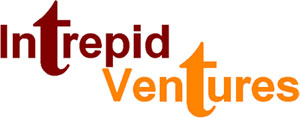In January NYC lawmakers banned merchants banning cash. Last year SF mandated merchants accept cash. They may rue the day.
Covid-19 is hammering vulnerable populations and the economy. It’s also making consumers and merchants increasingly leery of transacting in dirty, potentially contaminated cash. On Visa’s April 30th earnings call CEO Al Kelly warned “Currency is a germ-carrying mechanism.” While the coronavirus will be vanquished, the economy recover, and Americans return to a semblance of normalcy, diminished cash use will be a lasting legacy of the coronavirus pandemic.
The payments industry has battled cash since Diners Club’s 1950 inception. In 2018 15.1% and 24.6% of US consumer-payment volume and transactions, respectively, were in cash, excluding mortgage payments. In most countries cash is still the leading retail-payment system.
To fight the coronavirus in March France’s storied Louvre museum stopped accepting cash. In the US Amazon’s Whole Foods has started restricting cash payments.
ATM withdrawals in the UK fell 60% yoy in the month ended April 27th.
Short-term demand for cash in some markets, however, has surged, not for transacting but as a hedge. In Russia, about 1 trillion rubles ($13.6 billion) was withdrawn from ATMs and bank branches since the beginning of March, more than during 2019. Withdrawals spiked after President Putin extended self-isolation measures and imposed a tax on bank deposits over 1 million rubles. In the Eurozone circulating banknotes rose by €41.2 billion to €1.33 trillion, the largest increase since the 2008 financial crisis.
Fear of Covid-19 will spur greater interest in digital currencies.
Facebook and the Libra Association scaled back ambitious plans announced last year to launch a global digital currency and payment system, which provoked a din of hostility from regulators and politicians. Their rethink will keep Libra’s transaction ledger permissioned, making it less likely bad actors will get access. And Libra stablecoins will be backed by each jurisdiction’s national currency – dollars, pounds, euros, et al, rendering them akin to electronic banknotes. That won’t threaten government monopolies creating money. The coronavirus has created a signal opportunity for the social-media giant’s ambitions in payments.
Signature Bank and Chase already have digital dollars for business-to-business payments. Wells Fargo Digital Cash will launch this year. Banks could repurpose their digital dollars to replace physical cash at grocery stores, restaurants and barbershops.
The Peoples Bank of China is rolling out a digital-currency pilot in 4 cities: Shenzhen, Suzhou, Chengdu, and Xiong’an, a satellite city of Beijing.
Fear of touching will change the familiar experience of swiping or inserting credit cards and signing, to pay for goods and services.
For a quarter of a century the US payments industry half-heartedly tried to spur contactless payments. In 1996 Mastercard in Manhattan and Visa at the Atlantic Olympics ran pilots. The experience wasn’t compelling for consumers or merchants. Swiping cards was habit and nearly frictionless.
Google Wallet, Apple Pay and Samsung Pay launched in 2011, 2014, and 2015, respectively. Mobile-wallet evangelists enthused they would usher in an era of contactless payments at NFC-enabled merchants. Joe Cardholder and Jose Merchant, however, didn’t bite.
Covid-19 is more persuasive. Cardholders and merchants don’t want physical contact. Banks are rushing to put contactless credit and debit cards in consumers’ leather wallets and purses. Mastercard’s contactless payments increased 40% in the first quarter.
Time-honored signatures at the physical point of sale will disappear. March 23, 2020 Mastercard reminded merchant processors that payments at the physical pos by card or mobile phone don’t require signatures.
In the lockdown online retailers like Amazon are booming. In April, 2020 e-commerce surged to 50% of Mastercard’s transaction volume. While vaccinated Americans will return to bars and restaurants, fly to Europe for business and holidays, and again take cruises, e-commerce will continue its multi-decade trajectory, taking share from in-person commerce.
The Covid-19 pandemic will pass, having put a damper on consumers’ and merchants’ appetites to handle cash, and changed the experience of paying face-to-face.

